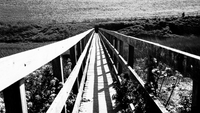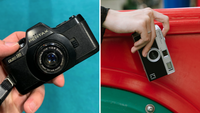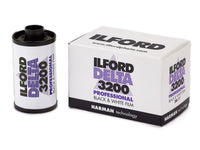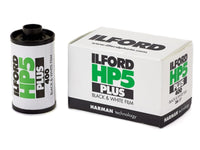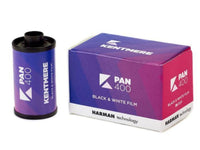Recent posts
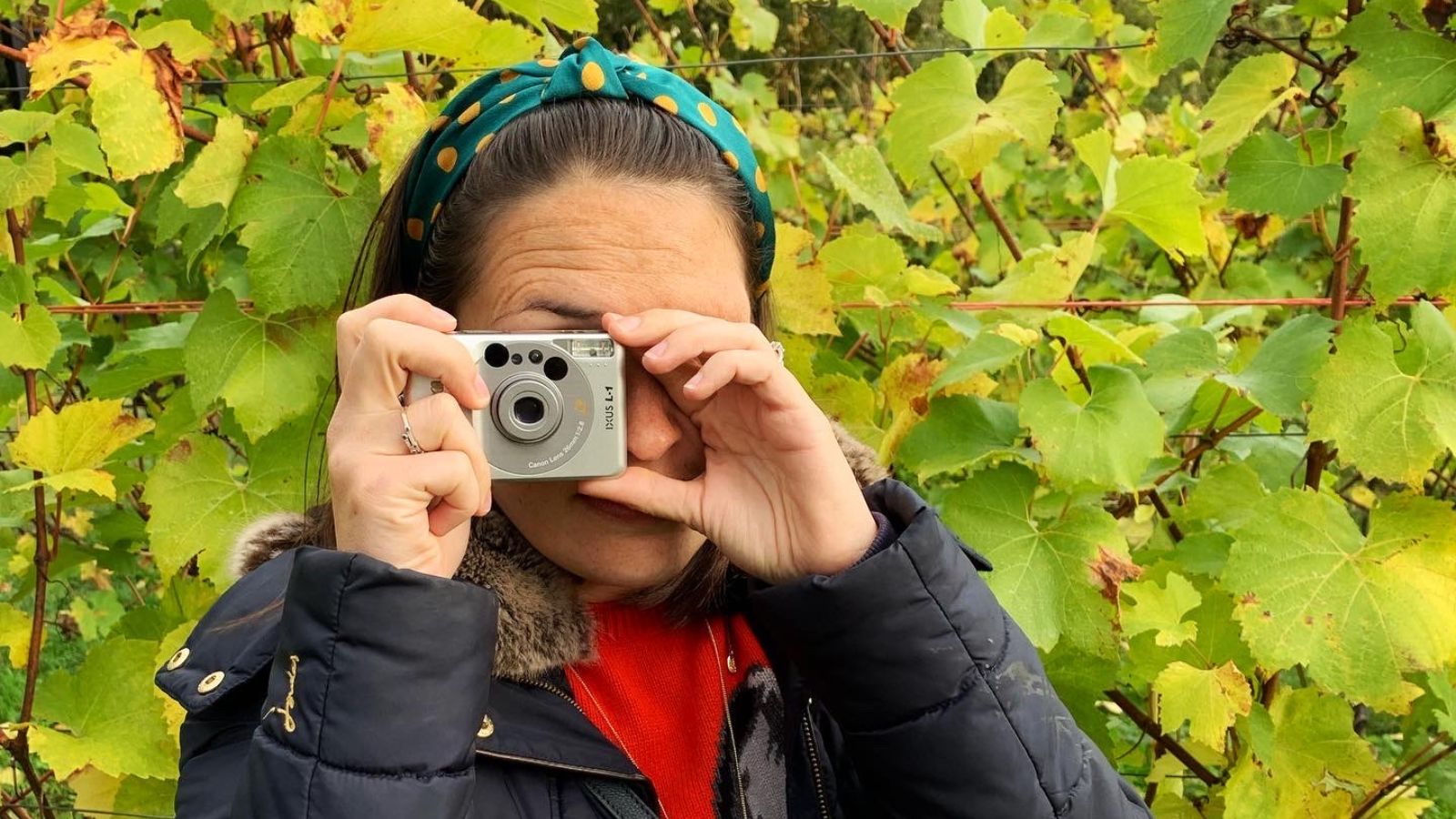
5 Top Tips for Budding Film Photographers: Advice from the Community
By Paul McKay
In the world of photography, there's something undeniably magical about film. Whether you're a film photography beginner or just pondering how to start shooting film, the journey into this timeless medium is as exciting as it is rewarding. With a resurgence in film photography, many enthusiasts are turning to this classic method to capture moments with a unique, tangible quality that digital photography can't replicate.
In this short listicle we're offering pearls of wisdom and advice for new film photographers, straight from our passionate community of experienced analogue shooters.
1: Start with the Basics
Embarking on your film photography adventure begins with mastering the basics. Understanding your camera and the film you're using is paramount. Familiarise yourself with your camera's settings and capabilities. Some older cameras might not support super high-speed films like Ilford Delta 3200, so it's essential to know your equipment's limits and quirks. Starting with the right film and camera settings can make all the difference in your journey.
And of course the most important of all the basics: "Remember to load film in your camera" - @gwelfor1. It sounds simple, but it's the foundation of all film photography. I've definitely forgotten that one a couple of times! Most memorably on a walk with my family where I was sure I'd caught some keepers of my niece and nephew. Oops...
2: Embrace the Learning Process
Embarking on your film photography journey is not just about capturing images; it's a continuous learning process. One of the most valuable pieces of advice for new film photographers is to embrace every step of this journey, including the mistakes. As @jonnydubshootsfilm from our community wisely puts it, "Embrace mistakes as they are fundamental parts of the journey."
Film photography requires a more mindful approach compared to digital. Every shot counts due to the limited number of exposures on a roll of film. This limitation is actually a blessing in disguise. It encourages you to think more deeply about your subject and composition, helping you develop a keener eye for detail and a more thoughtful approach to photography. Unlike the instantaneous nature of digital photography, film teaches patience and precision. @bobk815 suggests, "Learn how to operate a camera in digital first then transfer those skills to film."
Moreover, the film photography community is an incredible resource. It's a network of passionate individuals who are always eager to share knowledge and experiences. By engaging with this community, you will not only gain practical advice and support but also find inspiration in the diverse styles and approaches of other photographers. And remember, as @koczownik4 simply states, "Make mistakes."
Every roll of film you shoot is a new opportunity to learn and grow as a photographer. So, cherish your successes, learn from your errors, and enjoy the unique journey that film photography offers.
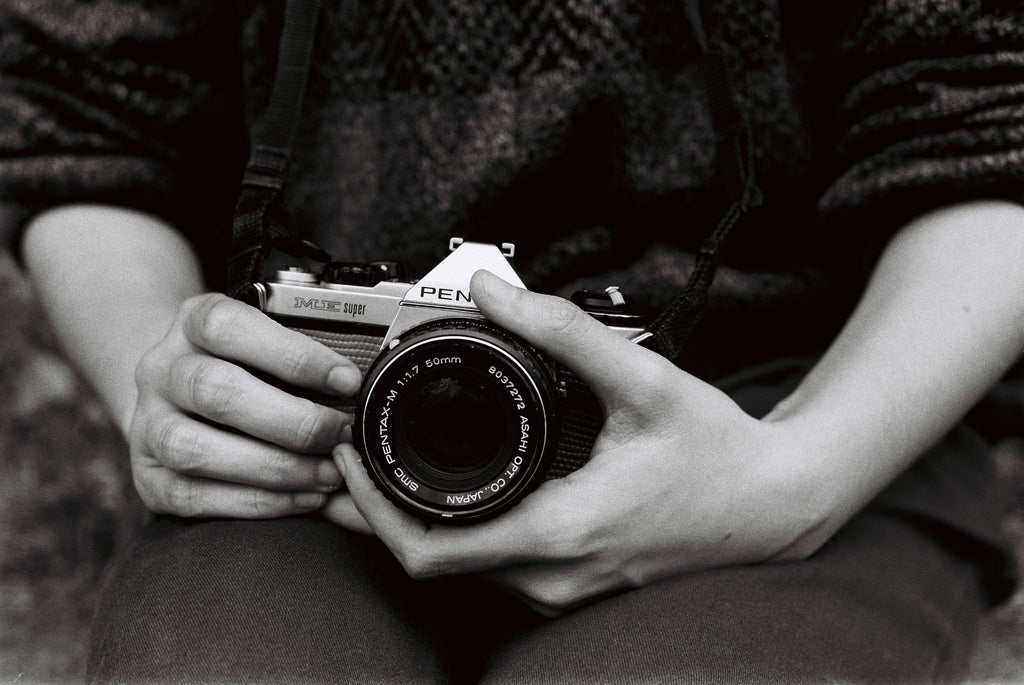
3: Explore Black and White Photography
One of the most rewarding aspects of film photography is the exploration of black and white imagery. This classic medium offers a timeless quality and a different perspective on the world around us. As @joelhdavidson from our community encourages, "Process and print your own black and white photos." This not only immerses you in the full spectrum of the photographic process but also gives you a profound appreciation for the nuances of monochrome images.
Black and white film photography is not just about the absence of colour; it's about the play of shadows, light, and texture. It teaches you to see the world in terms of contrast and composition, honing your skills as a photographer. According to @dbwilliamsphotography, "Stick with it. You have never had it so good. Digital photography is good for speed but nothing beats an image produced in a darkroom." This sentiment echoes the unique satisfaction that comes from creating images in a darkroom, offering a hands-on experience that digital photography cannot replicate.
Our best-selling B&W films for beginners are Ilford HP5 and Kentmere 400 because they are flexible, affordable, and deliver great results. However, personally I'd always add Kodak Tri-X to that list as it offers a different aesthetic with greater grain and contrast. If you're interested in more then check out our Kodak Tri-X vs HP5 blog or our 'Top 6 B&W films' showdown!
Furthermore, black and white film photography has an element of surprise and magic that is often lost in our digital age. As @mastro_yo aptly puts it, "There is nothing more magical (well almost nothing) than seeing your image come to life in the developer." This magic is a testament to the enduring allure of black and white photography and its ability to captivate both photographers and viewers alike.
Whether you're drawn to the aesthetic, the process, or the history, black and white film photography is a journey worth taking. It's a pathway to understanding the fundamentals of photography and a step towards discovering your own creative voice.
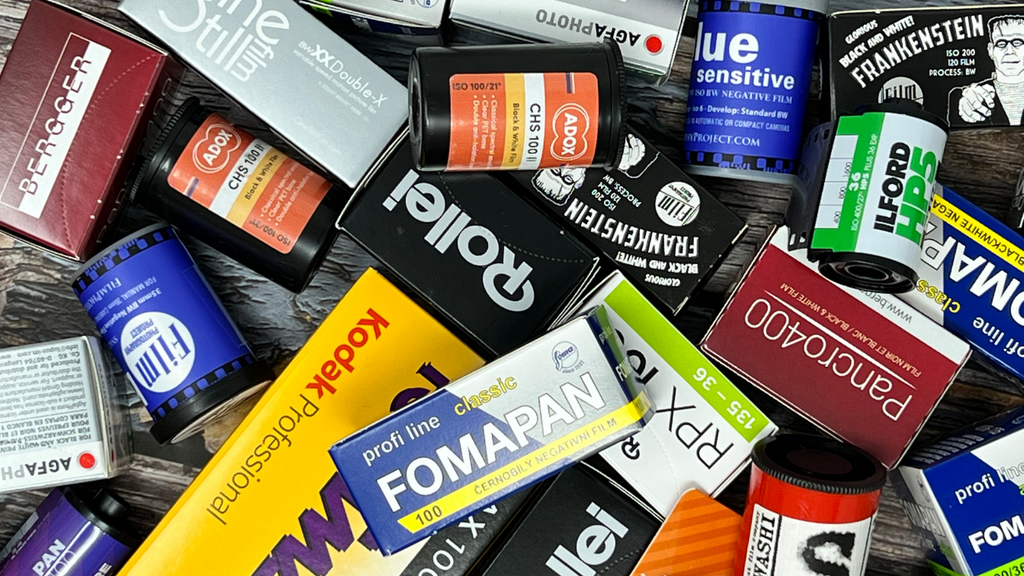
4: Budgeting and Cost Management in Film Photography
Navigating the costs associated with film photography is an essential skill for beginners. While film photography can be more expensive than digital in some aspects, there are ways to make it more affordable and enjoyable. As @lostlandsuk from our community advises, "If you're using roll or sheet film, keep a notebook. Note down every shot and why you took it." This approach not only aids in managing your film usage economically but also enhances your photography skills by making each shot deliberate.
Engaging in the processing and printing of your own black and white photos, a suggestion from @joelhdavidson, is another cost-effective method. This not only saves on lab fees but also immerses you in the comprehensive experience of film development.
When it comes to purchasing film, exploring deals can significantly trim your expenses. Analogue Wonderland offers a variety of deals on film, allowing photographers to experiment with different film types affordably. It's an excellent opportunity to delve into the diverse world of film photography while adhering to your budget. There's many other ways you can save on film with us too, such as by joining our Club AW to start earning WonderPoints (money off future purchases).
Finally, as @bobk815 suggests, learning the basics of photography using a digital camera can be a more budget-friendly start before venturing into film. This method allows you to grasp the essentials and make informed decisions about your film equipment requirements.
Remember, the essence of film photography lies in the journey and the experience, not just in the expenditure. Wise budgeting and utilising deals can amplify this adventure, rendering it both economical and enriching.
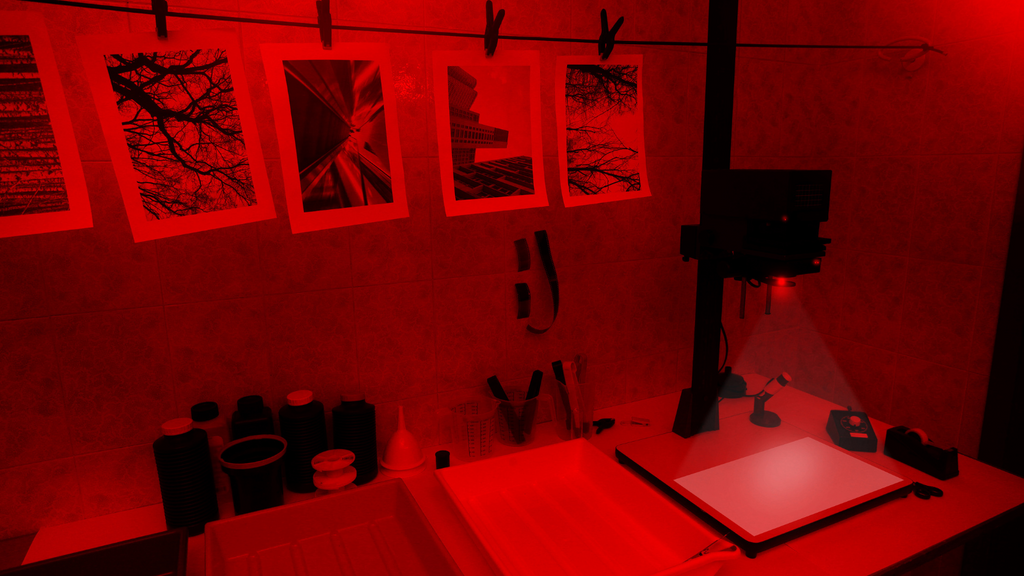
5: Community and Support in Film Photography
The film photography community is a vibrant and supportive network, playing a crucial role in the journey of new photographers. "Stick with it. You have never had it so good. Digital photography is good for speed but nothing beats the camaraderie of the film community," says @dbwilliamsphotography, capturing the essence of the unique bond and support system within the film photography world.
Engaging with fellow photographers, both online and in person, opens a world of shared knowledge, inspiration, and encouragement. "@susemacg Nikon F80 and 50mm f 1.4 G - only dreamt of such a kit as a teenager. Be inspired by others but find your own way," shares @robertmarkusdr, highlighting the importance of learning from others while creating your own photographic journey.
Additionally, the community offers a plethora of diverse perspectives that can expand your understanding and approach to photography. "Have an open mind about subjects and techniques; the film community is full of creativity and new ideas," advises @discover_still, encouraging openness to continuous learning and evolution as a photographer.
Whether seeking technical advice, artistic inspiration, or simply a sense of belonging, the film photography community is an invaluable resource. It's a place to share your passion, learn from the experiences of others, and grow in your craft. Our Wall of Inspiration is a treasure trove of reviews and sample images captured by our talented community - use it to help choose your next film stock!
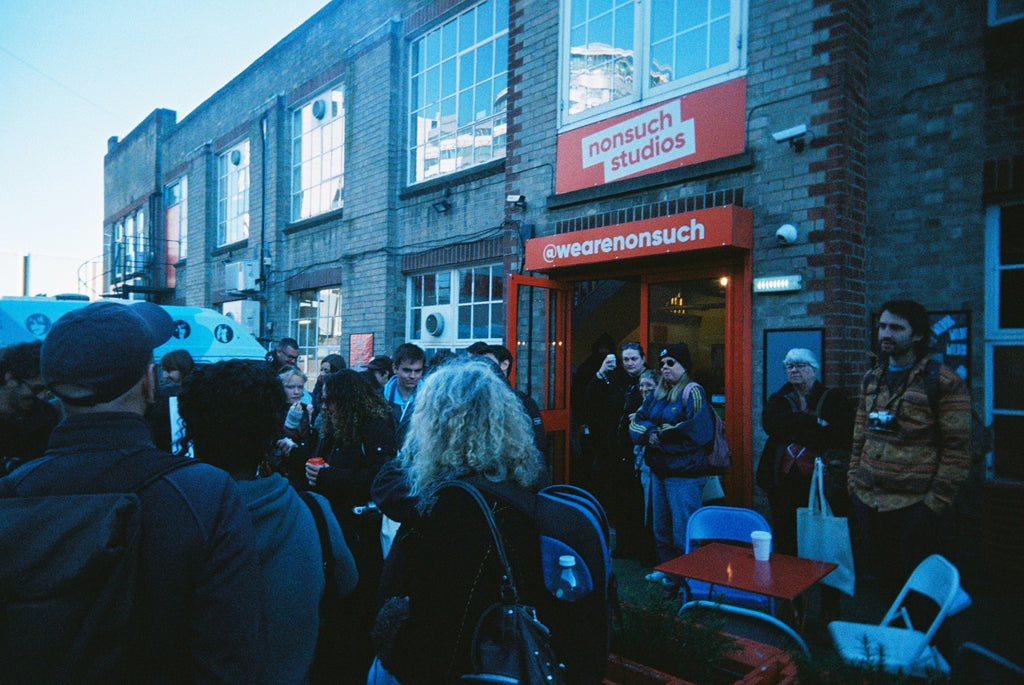
Embracing the Journey of Film Photography
As we conclude our exploration of film photography, it's evident that this journey transcends mere image capture. It's about embracing a process that is as challenging as it is rewarding. "Just start taking pictures. And, go thrifting for different cameras and film types," suggests @new_york_albertan, encapsulating the essence of film photography - a blend of exploration, experimentation, and discovery.
Film photography is not merely a hobby; it's a passion that connects you to a rich history and a dynamic community. Whether you're immersed in developing your own black and white photos, experimenting with various film stocks, or engaging with fellow enthusiasts, every aspect enriches your understanding and appreciation of the craft.
"Time, temperature, development, these are the things that make film photography so rewarding," says Rand Scott Adams, highlighting the essence of film photography - a craft where patience, precision, and creativity come together to create something truly special.
As you embark on your film photography journey, remember to explore lab development options when you're ready to bring your images to life. Check out this convenient guide for sending your film to be developed and witness the magic unfold!
To all the budding film photographers, embrace this journey with enthusiasm and curiosity. Remember, the world of film photography is vast and inclusive – there's a spot for everyone in this community. What aspect of film photography are you most excited to explore?
Ready to dive in?
Keep Reading
View all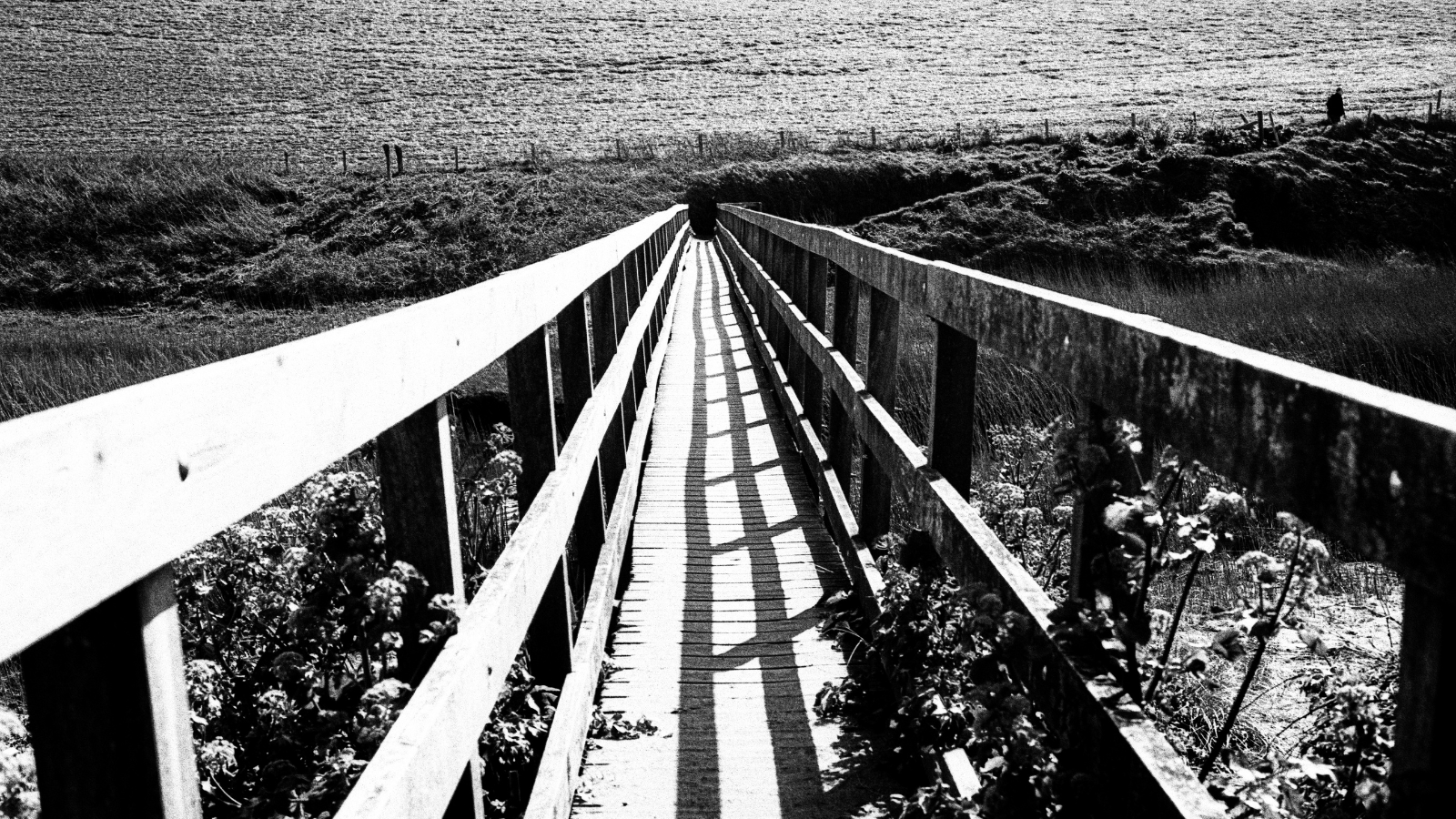
Experimenting with the Newest Addition: Ferrania P33 Film Review
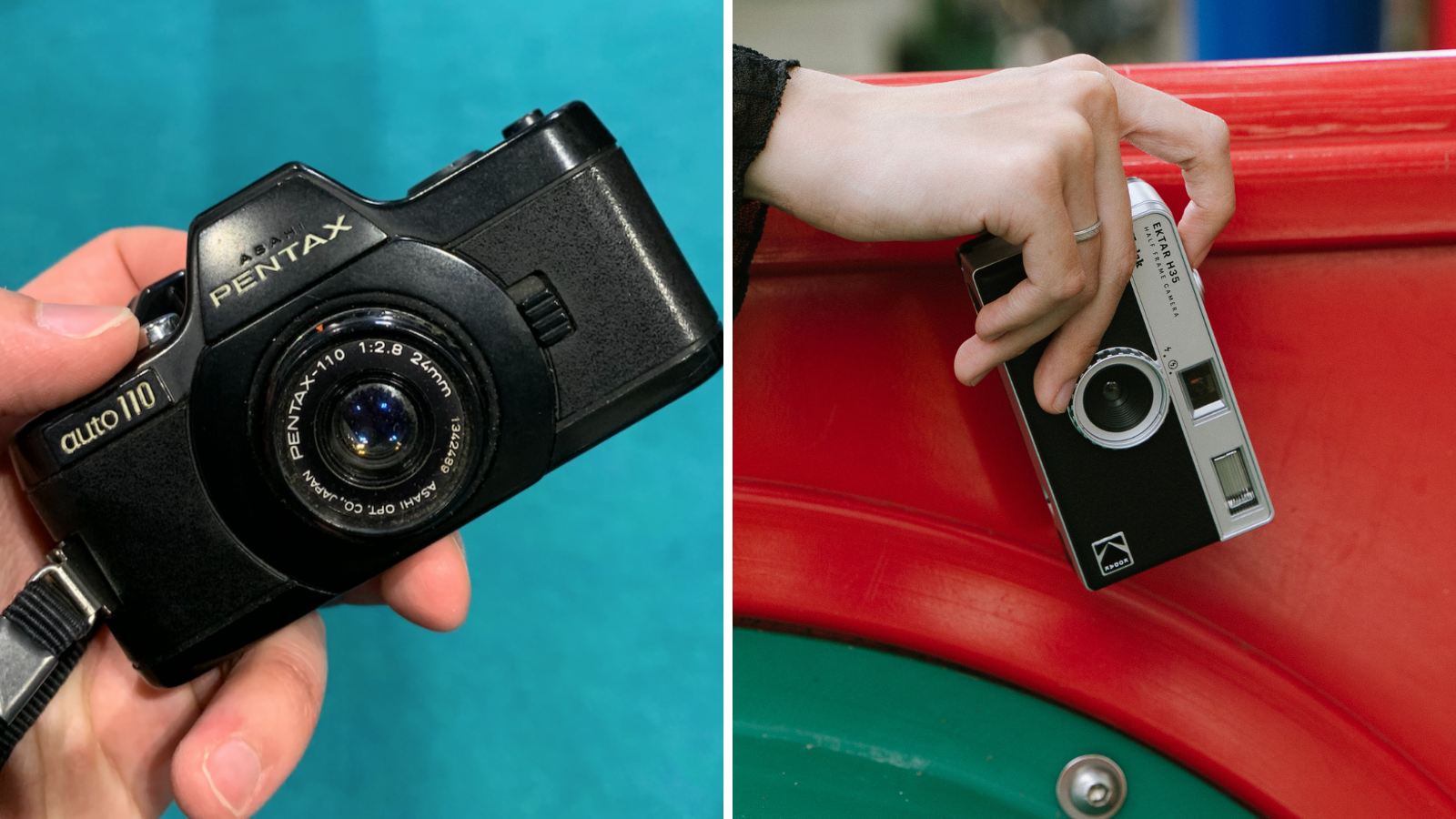
Half-Frame vs. 110 Film: Compact Convenience
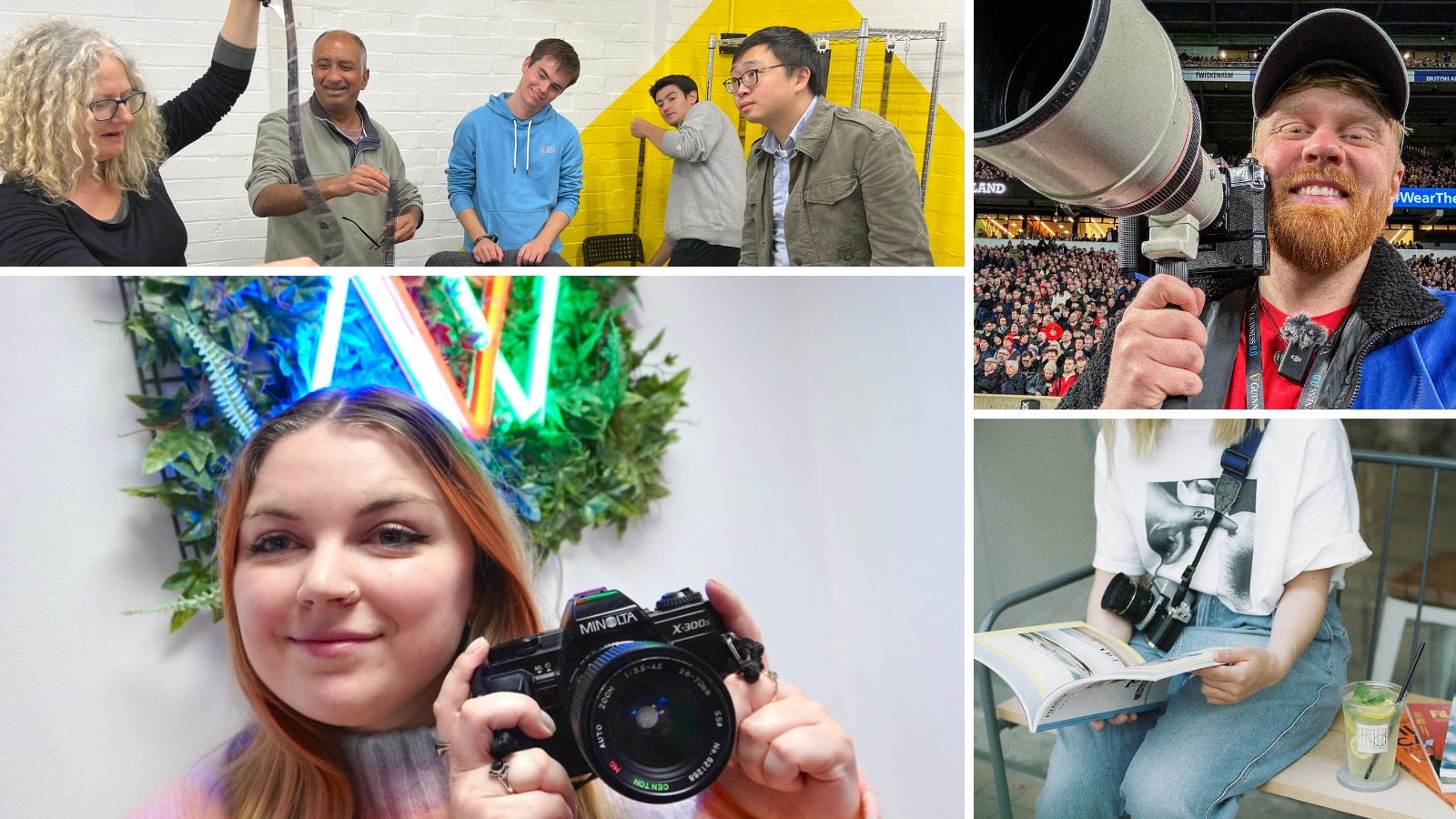
Analogue Appeal: Why Do People (Still) Shoot Film?
Subscribe to our newsletter 💌
Sign up for our newsletter to stay up to date on film photography news, sales and events:
Free Tracked Shipping
On all UK orders over £50
Passion For Film
An unbeatable range and an on-site lab
Our Customers Trust Us
Thousands of independent 5* reviews
All Deliveries are Carbon Neutral
Independently audited and verified by Planet
- Opens in a new window.

